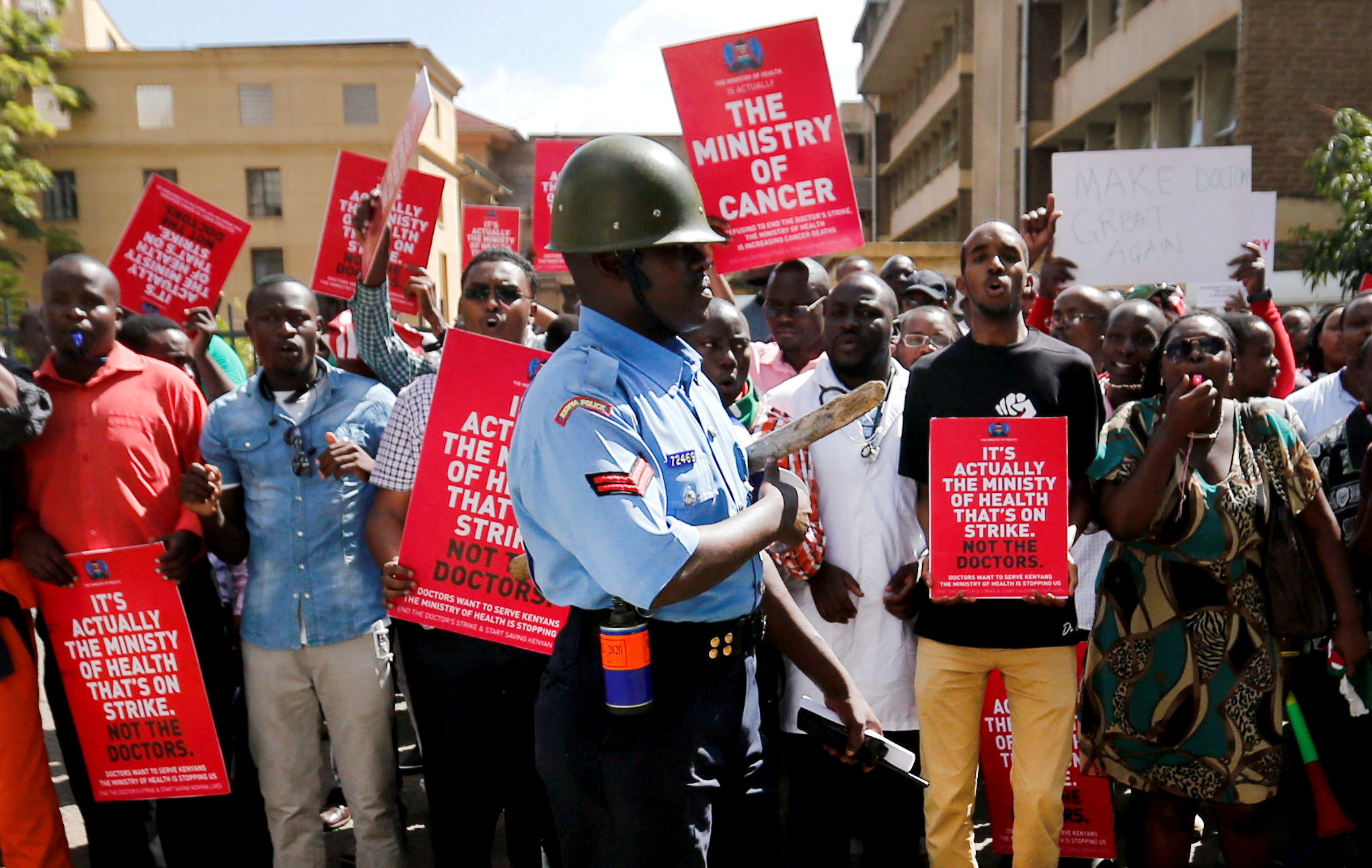
By Katharine Houreld and Humphrey Malalo
NAIROBI (Reuters) – The Kenyan government ordered the suspension of moves to shut down two rights groups that have raised concerns over last week’s election, hours after authorities raided one of the group’s offices.
Police and tax authorities on Wednesday raided the Africa Centre for Open Governance (AfriCOG), one of the organizations that has regularly highlighted problems with preparations for the Aug. 8 vote.
President Uhuru Kenyatta won the election by a margin of 1.4 million votes, according to official figures. Observers say the process was largely free and fair but opposition leader Raila Odinga has disputed the results as rigged.
In Wednesday’s letter seen by Reuters, acting Interior Minister Fred Matiang’i instructed Fazul Mohamed, head of the non-government organization coordination board, to suspend action against the organizations for up to 90 days while talks with the government are held.
Government threats to shut the AfriCOG and the Kenya Human Rights Commission drew condemnation from the United Nations, European Union and groups such as Amnesty International and Human Rights Watch who feared a crackdown on dissent.
The 90-day period would allow all sides to address “any outstanding non-compliance issues that may have led to the deregistration of the two organizations”, the letter said.
The NGO Board – a government-run body that registers and regulates NGOs – had said the two bodies risked being shut down for administrative and tax reasons.
Members of the targeted organizations said the crackdown was an attack on independent voices at a tense time in Kenya.
After a week where businesses were largely closed and many stayed away from work, life is back to normal across much of Kenya though people are eager to hear what Odinga’s next move will be. A call for a strike on Monday was largely ignored.
Odinga has said he will not challenge the result in court but is due to lay out his strategy later on Wednesday. Many fear any call for protest will add to the 24 already killed since voting day.
Some civil society leaders have said they may challenge the election in court.
The EU observer mission, which has broadly praised the vote so far, on Wednesday urged the election commission to publish all remaining forms showing vote tallies on its website to ensure the transparency and accuracy of the process.
“The timing of such information being made public is critical given that petitions relating to the presidential race must be filed within seven days of the results announcement,” the mission said in a statement.
Any challenge must be filed by the evening of Aug. 18.
Andrew Limo, an election commission spokesman, said about 2,900 of the 41,000 forms showing results at individual polling stations were not yet online.
“We call on the Kenyan authorities to give civil society the space and security to work towards greater democracy for Kenyans,” the EU mission added in its statement.
Earlier, Kenyan television showed pictures of the AfriCOG raid, during which civil society leaders challenged the search warrant. Human rights lawyer Maina Kiai asked why tax authorities had to bring three van loads of police.
“They say they have got a search warrant … (but) the search warrant does not name AfriCOG. The order does not specify what they are coming to do,” he said on television.
(For a graphic on Kenya’s presidential election, click http://tmsnrt.rs/2fbG3Yg)
(Additional reporting by George Obulutsa and Duncan Miriri; Writing by David Lewis; Editing by Matthew Mpoke Bigg)







